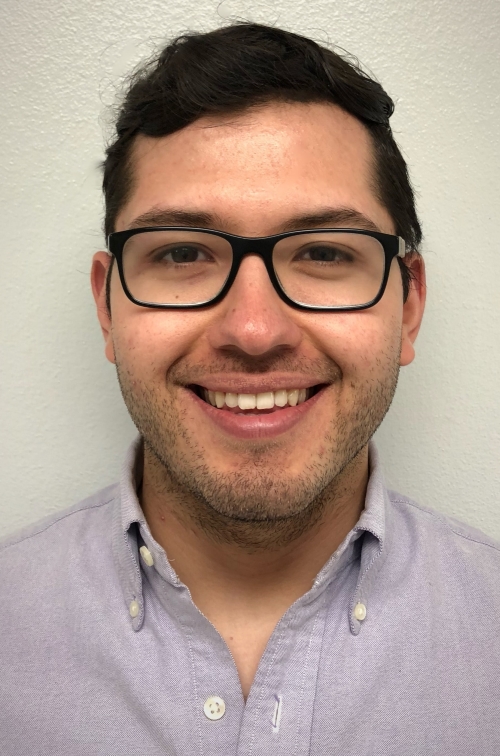Under the Shadow of COVID-19
by Edgar I. Alaniz-Cantu
During these unprecedented times, we are trying to cope with the new “normal” caused by the COVID-19 pandemic. Social isolation and stress are impacting people of all ages, especially adolescents who are now undergoing even more environmental/social changes. The purpose of this article is to try to raise awareness of some of the mental health impacts that COVID-19 is having on Hispanic adolescents (aged 12-17) in order to better help communities, respond.
Mental health disorders among adolescents are defined as serious and distressful changes in the way they learn, behave, and process their emotions.1,2 It is estimated that 13.7% of adolescents receive mental health services, of which 12.6% are Hispanic.3 Some of the known obstacles for seeking mental health care in Hispanic communities stem from cultural challenges: unwanted vulnerability when talking about emotions, a lack of understanding that increases the stigma associated with mental illness, and language barriers.4 To make matters worse, the COVID-19 public health crisis has not only reduced access to mental health services, but it has also worsened pre-existing mental health disorders. The closure of schools has been especially disruptive for the mental health care of adolescents in racial/ethnic minority groups; many of these students face financial and medical insurance limitations that only allow them to receive mental health services at school.5
Furthermore, the loneliness produced by the necessary social distance guidelines has exacerbated pre-existing mental health problems and increased the likelihood of adolescents experiencing newfound depression and anxiety.6 Some students reported that the lack of a school routine and the new shift to online-learning have dramatically impacted their sleep patterns, which make them feel restless and anxious.7 To help address the current and long-term effects of COVID-19 on adolescent mental health, policy makers should finance and deliver inclusive and timely access to tele mental health services (virtual therapy sessions)
To help, we can develop healthier coping skills and support one another:
- With so much external uncertainty, it could be helpful to create an organized routine (e.g., bedtime, wake-up time, mealtimes) even in the absence of classes and appointments
- Take care of yourself: eat healthy, exercise, and sleep well8
- Adolescents should avoid substance use (i.e., alcohol and drugs)
- Schedule regular virtual communication sessions with family and friends (e.g., talking on the phone and video chat)8
- Take breaks from social media and the news since constantly learning about pandemic tragedies can be upsetting8
- Learn the facts about COVID-19 in order to reduce stress from misinformation8 (e.g., false cures and conspiracy theories)
- Although it may be challenging at first, it is important to discuss any concerns/fears with trusted family and/or friends8
The following resources are available 24/7 for immediate help8:
- 911
- National Suicide Prevention Lifeline: 1-800-273-8255 (English) and 1-888-628-9454 (Spanish)
- National Domestic Violence Hotline: 1-800-799-7233
- National Child Abuse Hotline: 1-800-422-4453
- National Sexual Assault Hotline: 1-800-656-4673
Remember that you are not alone. We must all work together to emerge from the shadow of COVID-19 and enter into a brighter future.
References:
- CDC: https://coronavirus.health.ny.gov/system/files/documents/2020/03/quarantine_guidance_0.pdf
- Perou R, Bitsko RH, Blumberg SJ, Pastor P, Ghandour RM, Gfroerer JC, Hedden SL, Crosby AE, Visser SN, Schieve LA, Parks SE, Hall JE, Brody D, Simile CM, Thompson WW, Baio J, Avenevoli S, Kogan MD, Huang LN. Mental health surveillance among children – United States, 2005—2011.
- National Survey on Drug Use and Health: https://www.samhsa.gov/data/sites/default/files/report_1973/ShortReport-1973.html
- Anxiety and Depression Association of America – Latinx: https://adaa.org/hispanic-latinos#Facts
- Coronavirus Disease 2019 (COVID-19) and Mental health of Children and Adolescents: https://jamanetwork.com/journals/jamapediatrics/articlepdf/2764730/jamapediatrics_golberstein_2020_vp_200012.pdf
- Rapid Systematic Review – The impact of social isolation and Loneliness on the Mental Health of Children and Adolescents in the Context of COVID-19: https://els-jbs-prod-cdn.jbs.elsevierhealth.com/pb/assets/raw/Health%20Advance/journals/jaac/aip.pdf
- Vanguard Academy High School Student Interviews: Arianna Mejia, Class of 2021and Jorge Martinez, Class of 2021
- CDC:
Edgar I. Alaniz-Cantu is from the Rio Grande Valley and was born to Mexican parents. He graduated in 2017 from the University of Rochester with a B.A. in Biology and a minor in Clinical Psychology. After graduation, he served as a high school biology instructor in his community and continued his six-year initiative leading a college access program empowering more than 200 students to reach college acceptance through college-guided mentorship. He is currently a medical student at the University of Rochester School of Medicine and Dentistry, is part of the Latinx Health Pathway, and serves as an executive board member for the school’s chapter of Latino Medical Student Association (LMSA).